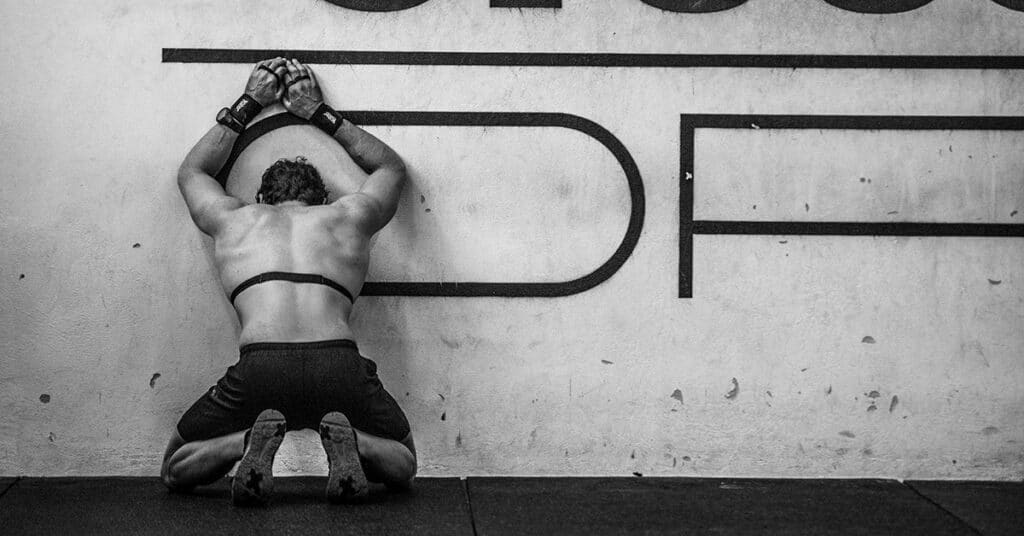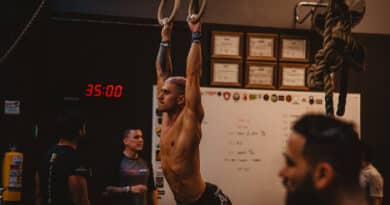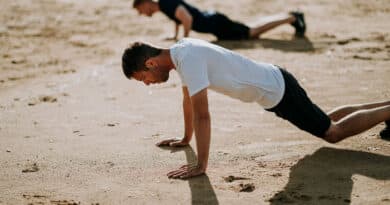Wall Walks Workouts for Strong Shoulders and a Powerful Core
These Wall Walks Workouts will help strengthen your core and shoulders, build confidence for handstands and enhance full body control.
What are the Wall Walks Exercise?
Wall Walks are a climb from the ground (prone), into a handstand against a wall, and back down to the ground again.
What is the Best Rogue Dip Station?
It’s a bodyweight gymnastics movement that develops strength, coordination, and balance.
To decrease the difficulty, climb only 1/2 way up the wall.
Benefits of Wall Walks
The exercise has many great benefits for your health, body and fitness.
Improve Balance and Coordination
The movement is difficult and requires the athlete to balance carefully and control their body effectively.
By practicing the exercise and adding it into your workouts, you will develop balance, coordination and proprioception. All of which will help you control, move and understand your body.
Stimulate Muscle Growth
This exercise requires a great deal of time under tension and forces your body and muscles to work hard.
This is exactly what you want when it comes to hypertrophy.
Additionally, as the movement is unusual, it will provide new stimulus for the body and kickstart it to adapt and grow in new ways.
Strengthen the Core
This movement is an excellent way to develop core strength. It demands a rigid, tight core that can control the movements of the body at all stages throughout the range of motion.
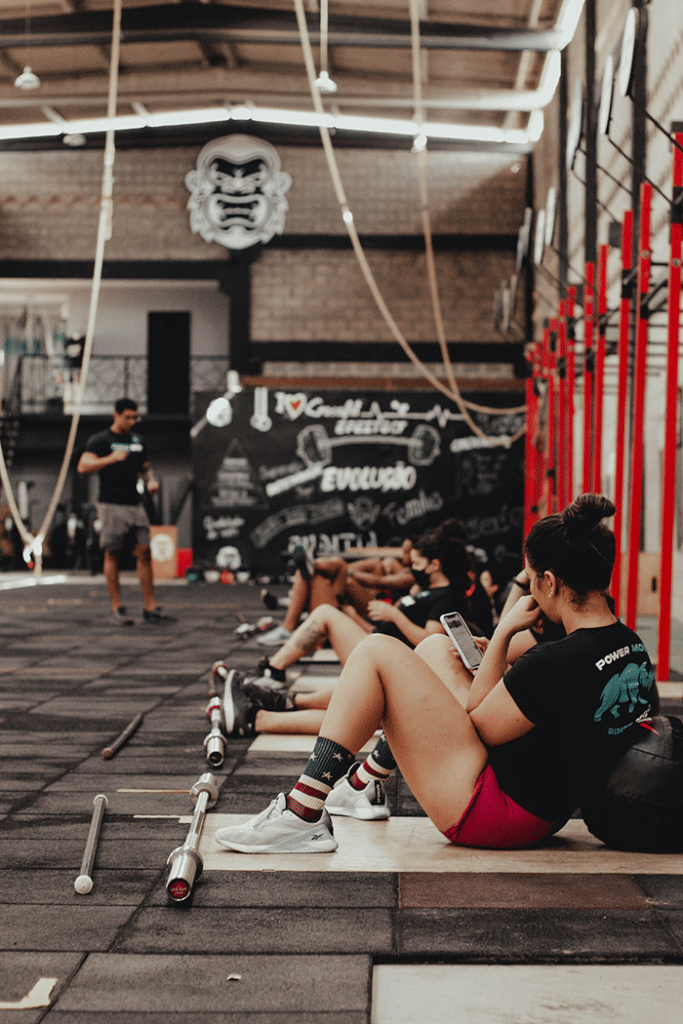
Enhance Overhead Confidence
It can be scary getting used to being upside down. Handstands, Handstand Push Ups and other inverted movements (try this crazy burpee variation) need a certain degree of confidence and commitment.
Wall Walks will help you to build up and augment this sense of control and confidence.
Build Stability
The movement will allow you to build full body stability. This is highly useful for almost every other type of movement and exercise, from running to lifting, and will enhance your fitness in general.
Muscles Worked by Wall Walks
The exercise incorporates many isometric and moving contractions from the activating muscles.
It works, the back, core, shoulders, glutes and arms.
Core and abs work hard to stabilise and control the body. They also protect the spine.
The Deltoids maintain the shoulders in a flexed position with the hands above the head.
Rotator Cuff stabilises the shoulders through the full range of motion.
The Triceps hold the elbow joint in place and balances the body.
How to Do Wall Walks
Use the following instructions to perform the exercise correctly.
Set-Up:
- Start prone (laying face down) on the floor with the hands flat on the ground
- It should look like the bottom of the Push-Up position
- Squeeze the butt and abs
Execution:
- Extend the arms by pressing to the top of a Push-Up/Plank Hold position.
- Maintain a neutral spine position.
- Climb the feet up the wall and walk hands closer to the wall.
- The arms remain extended throughout.
- Continue until the chest and thighs touch the wall.
- To complete the movement, return to the prone position on the floor
Points of Performance:
To get a “good rep,” ensure the following:
- Athlete must begin in a prone position with the chest, belly and thighs on the floor
- Athlete must touch the thighs and chest to the wall in the inversion
- Athlete must return to the starting position: prone with the chest, belly and thighs on the floor
Pro Tip: The upper body will be the first thing to fatigue in this movement. Keep the arms very straight—no elbow bend—throughout the climb to save the arms from early burnout.
Wall Walk Warm Up
Wall Walks Workouts
Add these workouts into your training.
WORKOUT 1
4 Rounds for Time
- 100 Double-Unders
- 10 Wall Walks
- 20 Box Jump Overs (24/20 in)
With a running clock, as fast as possible complete the prescribed work in the order written for 4 rounds.
Score is the time on the clock when the last round of the Box Jump Overs is completed.
WORKOUT 2
AMRAP in 12 minutes
- 2 Wall Walks
- 30 Flutter Kicks
- 60 Double-Unders
On a 12-minute clock, perform as many rounds and repetitions as possible (AMRAP) of the prescribed work in the order written.
Score is the total number of repetitions completed before the 12-minute clock stops.
WORKOUT 3
AMRAP in 19 minutes
- 4 Wall Walks
- 14 Jumping Air Squats
- 24 Mountain Climbers (Right+Left = 1)
- 34 Jumping Jacks
On a 19-minute clock, perform as many rounds and repetitions as possible (AMRAP) of the prescribed work in the order written.
Score is the total number of rounds and repetitions completed before the 19-minute clock stops.
Intended Stimulus
The movements in this workout are very accessible (not technical) but the time domain is on the longer side which requires most athletes to pace about 80-85% to avoid burning out.
Go too fast and you’ll find yourself taking breaks between sets with long transitions between movements.
The goal is to stay steady, go unbroken for each movement for as long as possible (1-2 sets on Wall Walks and 2-3 sets on Mountain Climbers is ok with short rests). Keep the transitions between each movement under 5-10 seconds.
Wall Walks and Mountain Climbers will tax your core and shoulders while Jumping Air Squats and Jumping Jacks will engage your legs and glutes.
If you don’t think you’ll be able to do each set unbroken, consider scaling.
Scaling Options
Beginner
AMRAP in 19 minutes
- 8 Inchworms (with Push-Up)
- 10 Air Squats
- 12 Sit-Ups
- 14 Jumping Jacks (without Arms)
Intermediate
AMRAP in 19 minutes
- 2 Wall Walks
- 12 Jumping Air Squats
- 22 Mountain Climbers (left+right=2)
- 32 Jumping Jacks
WORKOUT 4
AMRAP in 20 minutes
- 3 Wall Walks
- 15 Table Rows
- 100 Double-Unders
On a 20-minute clock, perform as many rounds and repetitions as possible (AMRAP) of the prescribed work in the order written.
Score is the total number of rounds and repetitions completed before the 20-minute clock stops.
WORKOUT 5
7 Rounds For Time
- 3 Forward Rolls
- 5 Wall Climbs
- 7 Toes-to-Bar
- 9 Box Jumps (30/24 in)
WORKOUT 6
AMRAP in 30 minutes
- 20 meter Right Arm Kettlebell Farmer’s Carry (70/53 lb)
- 10 Dumbbell Thrusters (2×50/40 lb)
- 20 meter Left Arm Kettlebell Farmer’s Carry (70/53 lb)
- 10 Chest-to-Bar Pull-Ups
- 5 Wall Walks
Perform as many rounds as possible of the work prescribed in 30 minutes.
10 meters are equal to 10 points or reps. Each round as a whole consists of a total of 65 points or reps.
WORKOUT 7
For Time
- 10 Wall Walks
Then, 100-80-60-40-20 reps of:
- Air Squats
- Sit-Ups
Finally, perform:
10 Handstand Push-Ups
With a running clock, as fast as possible perform the prescribed work in the order written. Athlete must complete 10 Wall Walks before moving to 100 Air Squats and 100 Sit-Ups, then 80 Air Squats and 80 Sit-Ups, etc. To complete the workout, athlete must accomplish 10 Handstand Push-Ups.
Score is the time on the clock when the last repetition of Handstand Push-Ups is completed.
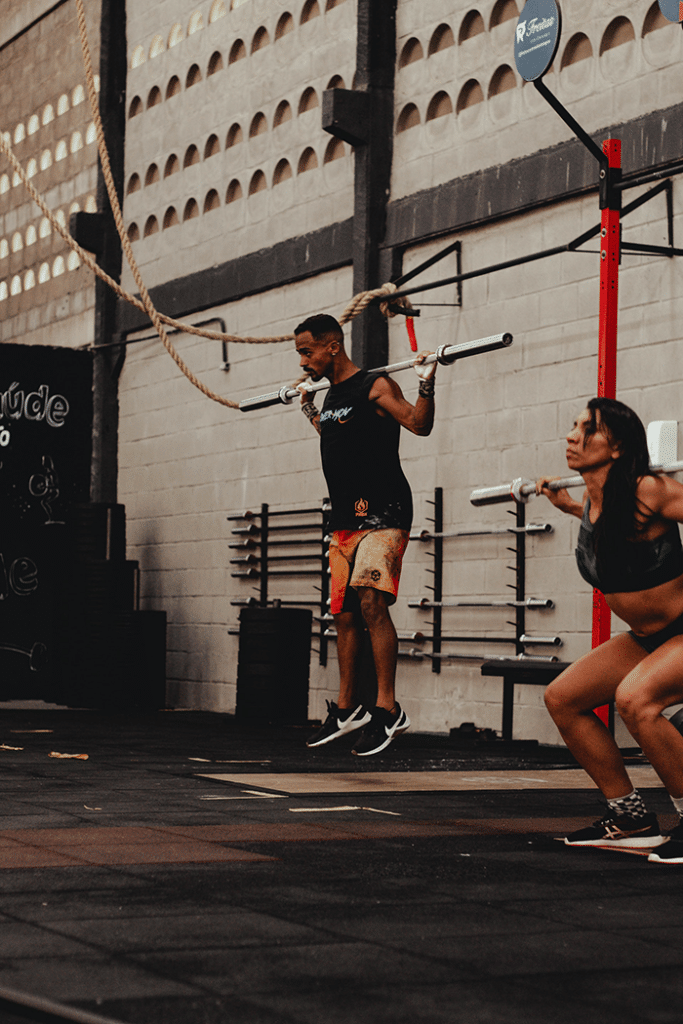
WORKOUT 8
AMRAP in 20 minutes
- 5 Wall Walks
- 10 Burpee Broad Jumps
- 15 Air Squats
- 20 Sit-Ups
On a 20-minute clock, perform as many rounds and repetitions as possible (AMRAP) of the prescribed work in the order written.
Score is the total number of rounds and repetitions completed before the 20-minute clock stops.
Scaling Options
You can scale the workout by decreasing from 20 to 10 Minute AMRAP. In addition, we recommend substituting Wall Walks for a 10-second Handstand Hold or 5 Push-Ups.
WORKOUT 9
Five Tabatas for Total Reps in 24 minutes
- Tabata Wall Walks
Rest 1 minute
- Tabata Air Squats
Rest 1 minute
- Tabata Pull-Up
Rest 1 minute
- Tabata Push-Ups
Rest 1 minute
- Tabata Sit-Ups
On a 24-minute clock, perform five Tabatas with 1 minute rest in between. The Tabata interval is 20 seconds of work followed by 10 seconds of rest for 8 intervals.
Score is the total number of repetitions completed before the 24-minute clock stops.
WORKOUT 10
AMRAP in 40 minutes
From 0:00-7:00, perform:
- Max Wall Climbs
From 7:00-10:00, perform:
- Max Burpees
Rest 5 minutes
From 15:00-22:00, perform:
- Max Push-Ups
From 22:00-25:00, perform:
- Max Double-Unders
Rest 5 minutes
From 30:00-37:00, perform:
- Max Sit-Ups
From 37:00-40:00, perform:
- Max Thrusters (45/35 lb)
On a 40-minute clock, perform the prescribed movements as many repetitions as possible (AMRAP) within the designated time cap.
Score is the total number of repetitions completed before the 40-minute clock stops.
WORKOUT 11 – CROSSFIT OPEN 21.1
RX
For time:
- 1 wall walk
- 10 double-unders
- 3 wall walks
- 30 double-unders
- 6 wall walks
- 60 double-unders
- 9 wall walks
- 90 double-unders
- 15 wall walks
- 150 double-unders
- 21 wall walks
- 210 double-unders
Time cap: 15 min.
Equipment Free
For time:
- 1 wall walk
- 10 lateral jumps
- 3 wall walks
- 30 lateral jumps
- 6 wall walks
- 60 lateral jumps
- 9 wall walks
- 90 lateral jumps
- 15 wall walks
- 150 lateral jumps
- 21 wall walks
- 210 lateral jumps
Time cap: 15 min.
Foundations
For time:
- 1 bear crawl
- 10 jumping jacks
- 3 bear crawls
- 30 jumping jacks
- 6 bear crawls
- 60 jumping jacks
- 9 bear crawls
- 90 jumping jacks
- 15 bear crawls
- 150 jumping jacks
- 21 bear crawls
- 210 jumping jacks
The bear crawl can be modified by placing the hands on an elevated surface and simulating the walking motion by bringing the knees to the chest.
The jumping jacks can be modified to a “stepping jack” if needed.
Time cap: 15 min.
WORKOUT 12
For Time
- Buy-In: 89 calorie Row
Then, 10 Rounds of:
- 12 Box Jumps (24/20 in)
- 18 Pistols
- 20 Wall Ball Shots (20/14 lb)
- 2 Wall Climbs
- 1 Rope Climb
Cash-Out: 200 meter Farmer’s Carry (heavy)
With a running clock, as fast as possible complete the prescribed work. Athlete will begin with the buy-in of 89 calorie Row. Then, proceed to 10 rounds of 12 Box Jumps, 18 Pistols, 20 Wall Ball Shots, 2 Wall Climbs, and 1 Rope Climb. To complete the workout, athlete must perform the cash-out of 200 meter heavy Farmer’s Carry.
Score is the time on the clock when the cash-out is completed.
Intended Stimulus
This is a long workout and intended to be a fairly steady pace across the rounds. All of the movements can be performed unbroken with perhaps the exception of the Wall Ball Shots for some. Aim to break the Wall Ball Shots into no more than 2 sets if needed.
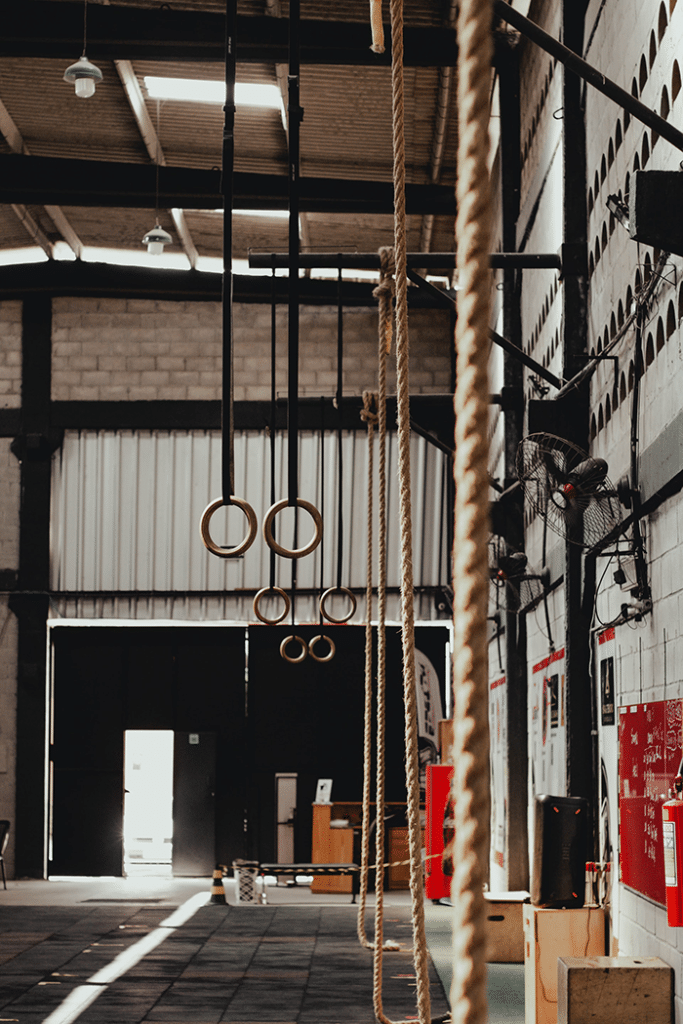
WORKOUT 13
For Time
- 50 Deadlifts (135/95 lbs)
- 50 Double Kettlebell Swings (24/16 kg)
- 50 Push-Ups
- 50 Clean-and-Jerks (135/95 lb)
- 50 Pull-Ups
- 50 Kettlebell Taters (24/16 kg)
- 50 Box Jumps (24/20)
- 50 Wall Climbs
- 50 Knee-to-Elbows
- 50 Double-Unders
A Kettlebell Tater is a kettlebell swing into a front squat, in which the bell is flipped upside down at the top of the swing and right side up again at the top of the front squat.
For Time:
- 100 Sit-Ups
- 90 Dumbbell Suitcase Deadlifts (50/35 lb)
- 80 Russian Twists (each side)
- 70 Up Downs
- 60 Alternating Box Step-Ups (24/20 in)
- 50 Bench Dips
- 40 Dumbbell Goblet Thrusters (50/35 lb)
- 30 Alternating Crab Kicks
- 20 Inverted Burpees
- 10 Wall Walks
Every 3 minutes, perform:
- 5 Burpees
- 15 Air Squats
Time Cap: 39 minutes
With a running clock, as fast as possible perform the prescribed work in the order written. Every 3 minutes, perform 5 Burpees and 15 Air Squats before continuing where you left off.
Score is the time on the clock when the workout is completed.
Movement Standards
Dumbbell Suitcase Deadlift: This is a variation of the standard Deadlift wherein the athlete will hold a Dumbbell on one hand and perform a single-arm Deadlift.
Up Down: This is a variation of the standard Burpee. Perform a standard Burpee without the Push-Up and stand up to full extension from the Plank Hold. This counts as one rep.
Alternating Crab Kick: Sit on the ground with heels planted on the floor and both hands behind you with the fingers facing backward. Lift the hips off the ground and kick your left leg up, then the right leg. This counts as one rep.
Scaling Options: Pick a weight on the light to the moderate side to be able to get big sets in this one.
Wall Walks Alternatives
If you want to mix things up, add these alternatives into your workouts.
- Handstand Hold against the wall
- Freestyle Handstand Hold
- Handstand Push Ups
- Pike Push Ups
- Bear Crawls
Learn More
Learn Face Pulls and Rack Pulls.

